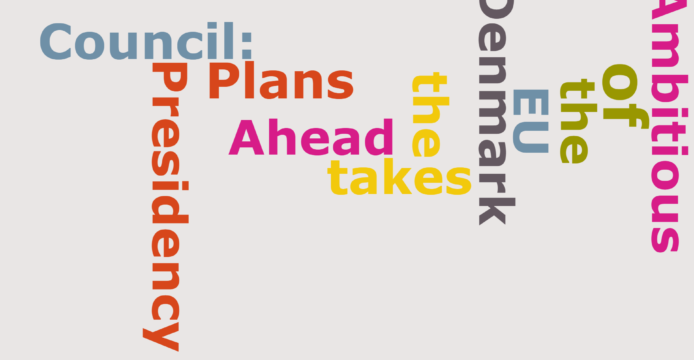As you know the Presidency of the Council of the European Union, which is its’ most powerful institutions rotates every six months among the Member States. As of the 1st of July 2025, this important function is going to be exercised by Denmark, who has rendered public a very interesting plan of action, entitled “A Strong Europe in a Changing World”.
In this plan, the Danish government promises to work in order to support a more competitive Europe by ensuring labour markets that are competitive and provide decent and fair working conditions, where jobs are safeguarded and the right skills for the future labour market are available.
Transport, Telecommunications and Energy are among the key sectors the Danes are going to put emphasis on. Their Presidency will thus continue efforts to strengthen and future-proof Europe’s transport sector, digital infrastructure, telecommunications, and the internal energy market. In transport, the Danish Presidency will focus on boosting competitiveness, cutting administrative burdens, and driving the green transition. In telecommunications, the focus will be on making critical telecom infrastructure more robust and resilient. The Presidency will also work to strengthen the EU’s digital competitiveness and technological sovereignty.
More specifically, and it order to render the EU more competitive; Copenhagen will place focus on regulatory simplification and better regulation in the Union to ease daily operations for businesses and other stakeholders. Furthermore, the Presidency will advance an industrial policy that promotes green strengths, investment, and technology development across Europe. To strengthen competitiveness and succeed in the green transition, businesses must benefit from simpler regulations and clarity on the impact of legislative proposals when making major future decisions.
Closing Europe’s innovation gap in critical technologies such as artificial intelligence, quantum technology, biotechnology, and space technology are essential. The Presidency will therefore prioritise creating an optimal framework for excellent research and innovation, while simultaneously encouraging cooperation between public and private sectors.
To achieve all this, Copenhagen plans to focus on national structural reforms, the implementation of EU fiscal rules, burden reduction and simplification, improving framework conditions for European businesses, and the mobilisation of private investment, including progress towards an integrated European Savings and Investment Union.

